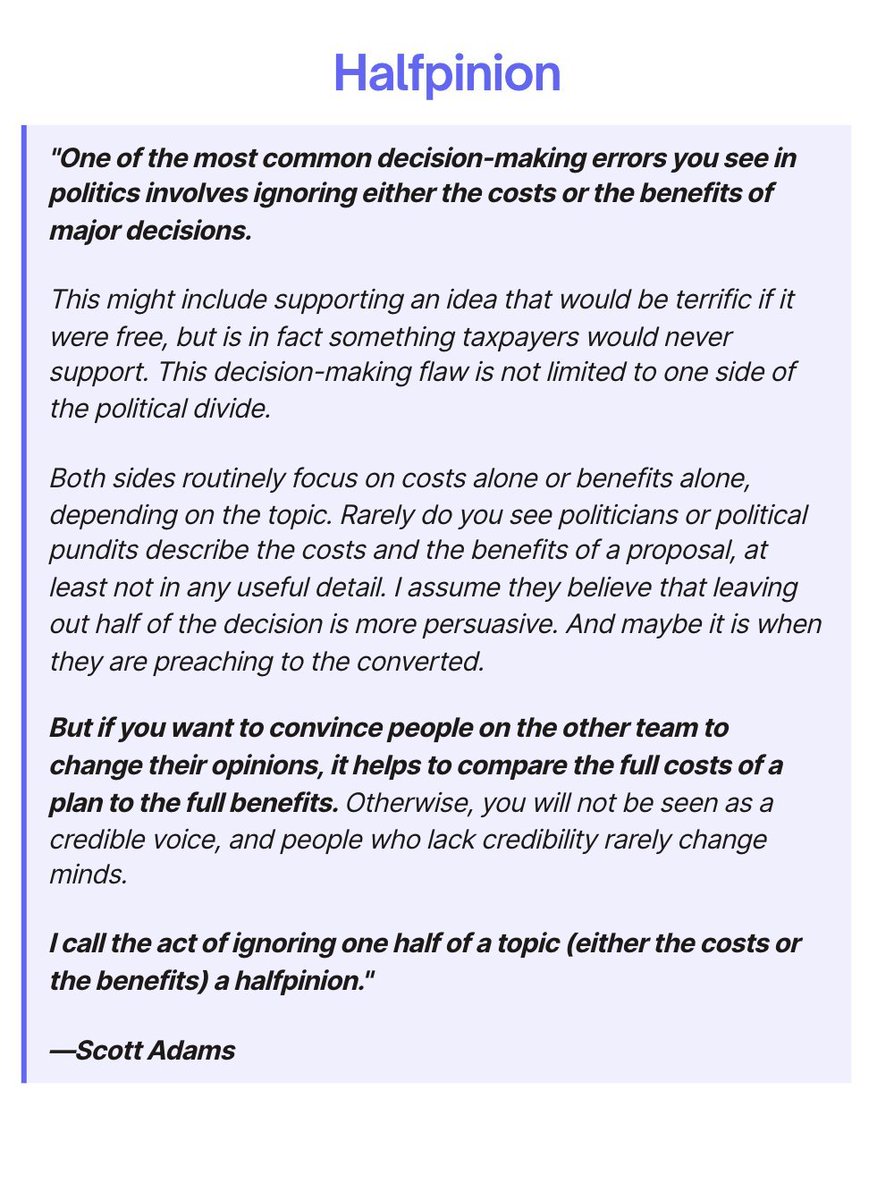10 mental concepts that will make you way smarter:
Russell Conjugation When someone chooses different words to describe something, depending on how favourable they want to be to what they’re describing. When reading or listening to others, ask: “Am I forming my opinion based on facts, or the opinion of the writer/speaker?”

Halfpinion The act of ignoring one-half of a topic (costs or benefits). If you want to convince people to change their opinions, always compare the full costs to the full benefits. A full opinion is credible. And credible people change minds. h/t @ScottAdamsSays

Gambler's Fallacy We think future possibilities are affected by past events. You've lost 9 in a row, but you're sure to win the next one! You've won 9 in a row, how could you possibly lose the next one?! Lesson: Treat each possibility independent of the past.
The Approval Paradox The more you want someone's approval, the harder it is to get it. Approval seeking is a sign of insecurity and neediness, both unattractive traits. “When you're content to simply be yourself and not compare or compete, everyone will respect you.” —Lao Tzu
Effectiveness vs. Efficiency Effectiveness: Doing the right things—getting the result you intend. Efficiency: Doing things right—working with minimal waste of time and effort. To achieve more, you must be both effective & efficient, but effectiveness should come first.

Duration Neglect The duration of an experience has little effect on how you remember it. The overall rating comes from the peak intensity of the experience and the end of the experience (Peak-end rule). To remember more, seek more novel experiences—life will seem longer.
Illusory Superiority We overestimate our positive qualities and underestimate negative qualities relative to others. Applies to intelligence, performance on tasks, and the possession of desirable traits. The more objectively you see yourself, the more you can improve yourself.
Introspection Illusion We think we understand our motivations and desires, our likes and dislikes. We believe we know ourselves and why we are the way we are. In reality, when asked to explain our emotional states, we typically make something up. Dig deeper, reflect more.
Man in the Car Paradox No one is impressed with your possessions as much as you are. You think you want an expensive car or fancy watch. In reality, what you want is respect and admiration from other people. Don't have the mistaken belief that expensive stuff will bring it.
Zeigarnik Effect We remember unfinished or interrupted tasks better than completed ones. Without 'closing the loop' we remain distracted by these tasks. For better achievement and forward progress, learn to reduce the number of in progress projects or tasks.
